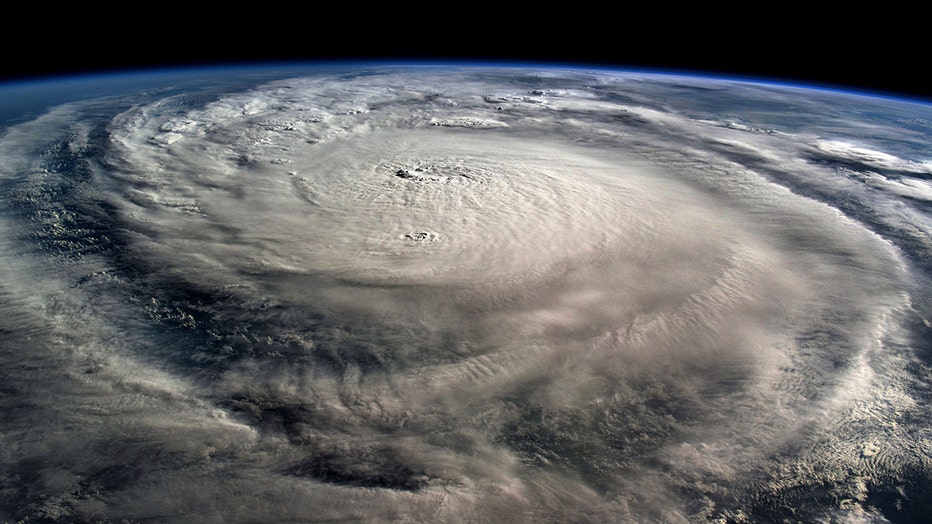Could hurricane forecasts get worse due to new government cuts?

Experts say hurricanes are getting stronger for several reasons
Nasty hurricanes that cause billions of dollars in damage are hitting more often.
Hurricane forecasts may become worse due to the upcoming cutoff of key data from U.S. Department of Defense satellites, experts are warning.
The move is the latest Trump administration push that could affect the quality of forecasting.
Could government cuts affect hurricane forecasts?
What we know:
The National Oceanic and Atmospheric Administration (NOAA) said it would discontinue the "ingest, processing and distribution" of data collected by three weather satellites that the agency jointly runs with the Defense Department by June 30.
The data is used by scientists, researchers and forecasters, including at the National Hurricane Center.
The microwave data gives critical information that can't be gleaned from the conventional satellites, and helps peer under a regular image of a hurricane or a tropical cyclone to see what is going on inside of it. It is especially helpful at night.
Microwave imagery also allows researchers and forecasters to see the center of the storm. Experts say that can help in detecting the rapid intensification of storms and in more accurately plotting the likely path of dangerous weather.
What we don't know:
According to The Associated Press, it wasn’t immediately clear why the government planned to cut off the Defense Meteorological Satellite Program's microwave data by Monday. The Defense Department referred questions to the Air Force, which referred them to the Navy, which did not immediately provide comment.
NOAA spokesperson calls cut off ‘routine process’
What they're saying:
NOAA spokesperson Kim Doster, in a statement, called it a "routine process of data rotation and replacement" and said that the remaining data sources "are fully capable of providing a complete set of cutting-edge data and models that ensure the gold-standard weather forecasting the American people deserve."
The other side:
"If a hurricane, let’s say, is approaching the Gulf Coast, it’s a day away from making landfall, it’s nighttime," Union of Concerned Scientists science fellow Marc Alessi, told the AP. "We will no longer be able to say, OK, this storm is definitely undergoing rapid intensification, we need to update our forecasts to reflect that."
Other microwave data will be available but only roughly half as much, hurricane specialist Michael Lowry said in a blog post. He said that greatly increases the odds that forecasters will miss rapid intensification, underestimate intensity or misplace the storm.

In this NASA handout, Hurricane Milton, a Category 5 storm at the time of this photograph, is pictured in the Gulf of Mexico off the coast of Yucatan Peninsula on October 8, 2024 seen from the International Space Station as it orbited 257 miles above
That "will severely impede and degrade hurricane forecasts for this season and beyond, affecting tens of millions of Americans who live along its hurricane-prone shorelines," he said.
University of Miami hurricane researcher Brian McNoldy called the loss of data "alarmingly bad news" in a post on Bluesky.
"Microwave data are already relatively sparse, so any loss — even gradual as satellites or instruments fail — is a big deal; but to abruptly end three active functioning satellites is insanity."
NOAA job cuts
The backstory:
Massive job cuts at NOAA have raised concerns among scientists and former agency heads, who warn the layoffs could compromise weather forecasts, disaster response, and key economic sectors.
The first wave of firings, carried out in February, marked a significant reduction in NOAA’s workforce. The agency is esponsible for issuing weather warnings, tracking hurricanes, supporting wildfire response, and providing oceanic and atmospheric data used across industries.
RELATED: Latest DOGE layoffs threaten lives, experts say
The NOAA workforce is responsible for producing more than 300 billion weather forecasts each year, reaching 96% of American households.
With 122 local offices, the agency also provides seasonal forecasts for farmers, aviation weather alerts for pilots, and oceanic data for the shipping industry.
The Source: This story was reported from Los Angeles. The Associated Press, previous FOX Local reporting contributed.


